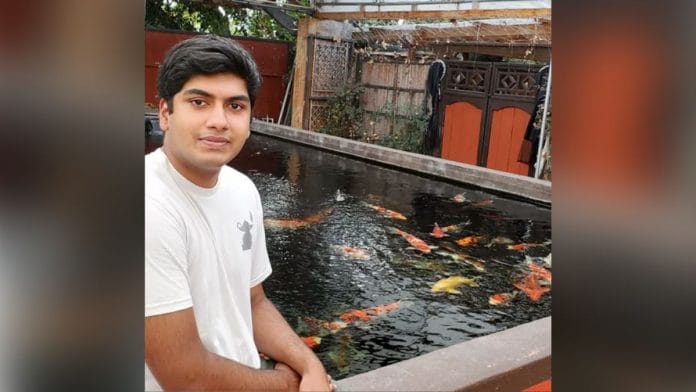New Delhi: Indian-origin student Indeever Madireddy from a leading private school in Silicon Valley has become the first person to successfully sequenced the genome of the freshwater angelfish (Pterophyllum scalare) after his pet fish Calvin died in earlier March this year.
A senior student at BASIS Independent Silicon Valley in California, Madireddy did the sequencing over two weekends at a community lab and published a short paper describing his work on 18 October.
“Although my fish was dead, I wanted to preserve it forever. So I decided to sequence the genome of the angelfish with the hopes that I could contribute that information to the scientific community, while also paying a small tribute to my pet!” said the 17-year-old to NewScientist, while discussing the significance of the project.
Freshwater angelfish are native to the Amazon basin and have a lifespan of 10 years. They are one of the most popular species of tropical aquarium fish worldwide for their long, majestic fins and ease of care. The process of genome sequencing helps determine the genetic makeup or DNA sequence of a specific organism, cell type or genome.
The estimated cost of sequencing was around $2000 and Madireddy managed to raise over $1000 by crowdfunding.
In his research paper, the high school student explained that the angelfish genomic DNA was extracted with the NEB Monarch genomic DNA purification kit.
“I sequenced, assembled, and annotated the complete genome of the freshwater angelfish in addition to the full mitochondrial genome with Oxford Nanopore Technologies,” he added.
As the DNA passed through tiny pores, these sequencers detected the sequence of the molecules. Nanopore sequencers are comparatively more advanced than other methods as they can sequence much longer pieces of DNA, making it easier for sequencing software to assemble the genome for analysis.
Before the experiment, Madireddy spent a month preparing and learning about the technicalities of genome sequencing. After the sequencing was complete, he spent over two months analyzing the data and while it didn’t reveal any different characteristics from other related fish species, the project contributed significant data as very little was known about the nuclear genetics of angelfish.
“This is a wonderful example of an inquisitive spirit and what young scientists can do when you remove technology barriers like cost and complexity,” said Gordon Sanghera, CEO of Oxford Nanopore.
This is not the first time Madireddy has delved into the world of aquatic biology. Previously, he studied the relationship between protein concentration in fish feed and water pollution among other projects. He has also studied mice vertebrae, viral infections, microplastic accumulation and more.
An avid fishkeeper and biologist, Madireddy has also received the prestigious Davidson Fellows Scholarship Program, which supports projects by students under the age of 18 in the fields of science, technology, engineering, mathematics, literature and music.
Also read: ‘Planet killer’ asteroid to soon cross Earth’s orbit, but poses no threat yet






